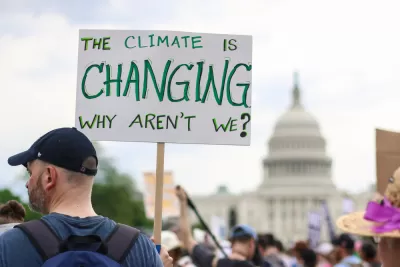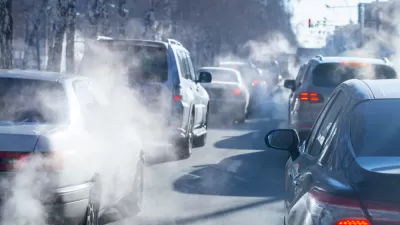The planet is not doing enough to reduce greenhouse gas emissions, according to a recent report published by the United Nations’ International Panel on Climate Change (IPCC).

The International Panel on Climate Change (IPCC) this week released a synthesis report on the 6th Assessment Report, published in 2021. The 6th Assessment set very real deadlines for climate action to prevent 1.5 degrees Celsius of warming by the end of the century.
The new Synthesis Report assessment finds that little progress is being made toward the emission reductions necessary to avoid the worst outcomes of climate change, and time is running out. Moreover, the report explains that although humans created this problem for the planet, they can also still fix it. U.N. Secretary General António Guterres has been quoted in the media describing the report as a “how-to guide to defuse the climate time-bomb.”
“Emissions from burning fossil fuels and other planet-warming activities have increased global average temperatures by at least 1.1 degrees Celsius (2 degrees Fahrenheit) since the start of the industrial era. The amount of carbon dioxide in the atmosphere hasn’t been this high since archaic humans carved the first stone tools,” explains Sarah Kaplan in an article for the Washington Post in an article that describes the unequal burdens facing countries as a result of climate change.
“In 2018, the IPCC found that a 1.5C world is overwhelmingly safer than one that is 2 degrees Celsius (3.6 degrees Fahrenheit) warmer than the preindustrial era,” adds Kaplan. “Five years later, humanity isn’t anywhere close to reaching either goal. Unless nations adopt new environmental policies — and follow through on the ones already in place — global average temperatures could warm by 3.2 degrees Celsius (5.8 degrees Fahrenheit) by the end of the century, the synthesis report says.”
“Yet the report also details how public officials, private investors and other powerful groups have repeatedly failed to heed those warnings,” according to Kaplan. Additional news coverage and commentary on the Synthesis Report is available from Vox and Quartz.
The report assumes that humans are responsible for climate change as an ‘unassailable fact,’ citing widespread consensus and ‘high confidence’ among the scientific community.
FULL STORY: AR6 Synthesis Report: Climate Change 2023

Maui's Vacation Rental Debate Turns Ugly
Verbal attacks, misinformation campaigns and fistfights plague a high-stakes debate to convert thousands of vacation rentals into long-term housing.

Planetizen Federal Action Tracker
A weekly monitor of how Trump’s orders and actions are impacting planners and planning in America.

In Urban Planning, AI Prompting Could be the New Design Thinking
Creativity has long been key to great urban design. What if we see AI as our new creative partner?

King County Supportive Housing Program Offers Hope for Unhoused Residents
The county is taking a ‘Housing First’ approach that prioritizes getting people into housing, then offering wraparound supportive services.

Researchers Use AI to Get Clearer Picture of US Housing
Analysts are using artificial intelligence to supercharge their research by allowing them to comb through data faster. Though these AI tools can be error prone, they save time and housing researchers are optimistic about the future.

Making Shared Micromobility More Inclusive
Cities and shared mobility system operators can do more to include people with disabilities in planning and operations, per a new report.
Urban Design for Planners 1: Software Tools
This six-course series explores essential urban design concepts using open source software and equips planners with the tools they need to participate fully in the urban design process.
Planning for Universal Design
Learn the tools for implementing Universal Design in planning regulations.
planning NEXT
Appalachian Highlands Housing Partners
Mpact (founded as Rail~Volution)
City of Camden Redevelopment Agency
City of Astoria
City of Portland
City of Laramie





























